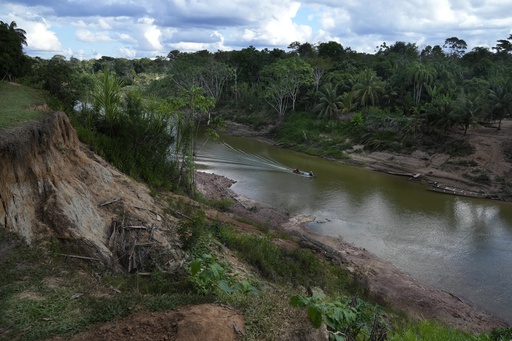In Apiwtxa village, Brazil, the Ashaninka people recently concluded their annual celebration, which highlighted their self-sufficiency and successful forest conservation efforts. The event included traditional rituals, such as drinking ayahuasca, archery tournaments, and face-painting, showcasing the tribe’s rich culture. The village’s sustainable practices have caught the attention of the Organization of Indigenous People of the Jurua River (OPIRJ), leading to a $6.8 million grant from the Amazon Fund to support similar projects in 12 Indigenous territories in the western Amazon region.
The Ashaninka’s successful land management, emphasizing food production, cultural preservation, and forest protection, serves as a model for combating deforestation and promoting Indigenous stewardship of the land. Indigenous territories in Brazil cover 23% of the Amazon region, playing a crucial role in conserving the rainforest and reducing carbon dioxide emissions. The Ashaninka’s territory, the Amonia territory, has seen minimal deforestation at only 0.03%, highlighting their effective forest management practices.
Through years of dedication and effort, the Ashaninka tribe has transformed their community, formerly a cattle farm, into a thriving village focused on reforestation and cultural revitalization. Each family in Apiwtxa takes care of forest areas containing fruit trees and medicinal plants, while also cultivating agricultural plots with a variety of crops. The tribe’s holistic approach sustains their daily lives, promoting autonomy, food sovereignty, and economic self-sufficiency.
By engaging with neighboring communities and establishing collaborative relationships, the Ashaninka have expanded their impact beyond their territory. The establishment of the Yorenka Atame center in Marechal Thaumaturgo has enabled the tribe to share their expertise in agroforestry and sustainable practices with other Indigenous and non-Indigenous groups. The Ashaninka’s efforts have gained recognition and support, with the Amazon Fund granting funds to enhance their projects and extend their influence.
Despite facing challenges posed by climate change, such as droughts affecting local production, the Ashaninka remain resilient and adaptive. The tribe, led by visionary leaders like Francisco Piyãko, continues to work towards environmental conservation and community development, inspiring other Indigenous groups like the Apolima-Arara territory. The OPIRJ project aims to provide support and resources to empower Indigenous communities to protect their lands and traditions, following the inspiring example set by the Ashaninka tribe.


